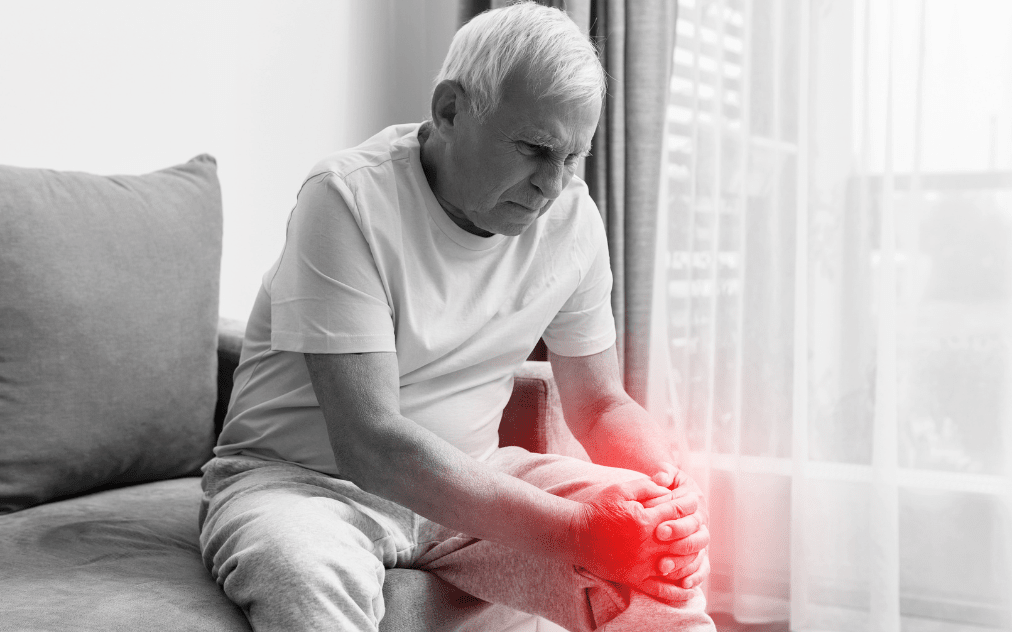Sore knees and stiff hips may be the first symptoms of rheumatoid arthritis that come to mind. Invisible symptoms, though, can be just as bothersome; up to 75% of patients report having trouble sleeping and feeling tired.
Because rheumatoid arthritis affects your entire body rather than just your joints, it is a systemic disease. According to several specialists, antibodies that circulate in your blood and induce inflammation are what’s to blame for your exhaustion.
This can lead to a troublesome cycle in which physical discomfort makes it harder to sleep, and the inability to sleep makes physical discomfort worse.
There are options if you’re sick of how rheumatoid arthritis limits you.
Personal Changes
Rheumatoid arthritis can be managed more easily by making small modifications to your lifestyle.
See how taking care of yourself can help you handle symptoms like fatigue:
1. Regular exercise. When it takes effort just to stand up, how can you inspire yourself to exercise? Keep in mind that exercising helps you feel better over the long term by improving your mood, extending your range of motion, and strengthening your muscles.
2. Eat a balanced diet. Arthritis is, in part, an inflammatory response, and while they might not be a food cure-all for the condition, there are foods that can increase and decrease inflammation in the body. Pick meals that seem to have anti-inflammatory properties. That covers the majority of veggies, nuts, fruits, and fatty seafood.
Knowing which foods to avoid can do wonders for helping improve your condition. In general, you’ll want to avoid consuming large amounts of sugars as they have been shown to increase and trigger inflammation even in as little as 30 minutes.
As with everything, pay close attention to your body and how it responds. With proper dietary adjustments and medical procedures (if needed), you can feel more energetic in your day-to-day life.
3. Hydration. Dehydration is frequently accompanied by fatigue. It’s crucial to drink enough water, especially if you have a condition like rheumatoid arthritis that might make these symptoms worse.
Proper hydration and its importance often go under-recognized. Almost 80% of adults in the united states aren’t drinking enough water. In addition to helping you fend off fatigue, proper hydration can help you flush out your system, especially if you consume too many salts or sugars. The unique thing about our bodies is that they naturally regulate themselves under the right conditions; with enough water and proper nutrition, they can often stabilize themselves.
4. Organize your house again. Make your house and workplace more user-friendly to save energy. Items you use frequently should be placed within easy reach. Get a tiny wheeled cart to transport items from one room to another.
Beyond having a safer space organizing your home has the added benefit of helping to improve your mood, and as we often clean while organizing rooms, your space will likely be cleaner than before. Studies show that a cleaner space can help elevate mood, increase productivity, improve sleep quality, and even reduce anxiety!
5. Make sleep a priority. While getting more sleep won’t necessarily make you less fatigued, it can help. Try to have a consistent bedtime and wake-up time each day. Keep your bedroom silent and in the dark.
Sleep hygiene is incredibly important, and the best part is this: proper sleep hygiene can be learned and improved. You might not have realized it but sleeping properly is a bit of a skill! If you want to learn more about how to get the most out of your night’s sleep, check out our previous blog here:
Simple Ways to Improve your Sleep Quality Naturally
Behavioral Changes
The impact of rheumatoid arthritis on your life is also significantly influenced by your attitude.
See how altering your perspective can give you more energy:
1. Let loose. Be compassionate with yourself. To safeguard your health, you might need to reduce your obligations. Don’t attempt to stay up with others; instead, concentrate on your own capabilities.
In today’s world, that can often be easier said than done; however, it is possible. When you make yourself a priority, your life can dramatically change. Learn to say no if you can’t or are unable to handle something. Remember, you are responsible for yourself, and you can’t help others if you’re unwell.
2. Be ready for failures. With rheumatoid arthritis, variations can be frequent and severe. There will undoubtedly be easy days and even harder periods for you. When you’re feeling sick, give yourself permission to rest.
3. Seek assistance. Even your closest family and friends might struggle to comprehend your exhaustion. Look for internet forums or support groups where you can connect with people who have had similar experiences.
A medical diagnosis
Over the past two decades, new and improved rheumatoid arthritis treatment alternatives have been made available. You might minimize the inflammation that leads to weariness according to your doctor’s advice.
Take into account these tactics:
1. Modify your medication. Rheumatoid arthritis medications today fall into a number of groups. If you feel significant fatigue, talk to your doctor about trying a new prescription and discussing the adverse effects.
2. Boost mobility. Your general health and strength can improve with physical therapy. You can get a recommendation from your doctor or use the American Physical Therapy Association to locate a rheumatoid arthritis specialist.
3. Control depression. Your risk of depression is doubled if you have rheumatoid arthritis. If you require assistance, let your doctor and loved ones know. The effectiveness rate of medication and counseling is high.
More often than not, the link between our emotional state and our physical state goes under-explored. How we feel emotionally can play a huge role in how we feel physically, and controlling that can be incredibly difficult. If you are looking for ways to improve your mental health or just balance yourself out, check out our previous blog:
Nine Habits to Improve your Mental Health
Despite the fact that there is currently no cure for rheumatoid arthritis, proper self-care, and medical care can improve your quality of life.
BSO Honey, arthritis, and fatigue
If you suffer from fatigue, it can be difficult getting your daily tasks done. Combatting inflammation at its source can help reduce the amount of fatigue and pain you experience as a result of your arthritis.
As mentioned in the previous blog, inflammation is the cause of a lot of bodily pains, illness, and other adverse health consequences. Arthritis is no different, as it is a condition that is heavily predicated on the existence of inflammation in the body. Reducing inflammation will not only help you feel better it should help reduce the existence of many of the visible and invisible symptoms associated with arthritis.
Black Seed Oil (BSO) Infused Honey can help with this. That is because one of the main constituents of this all-natural liquid health supplement is black seed oil. This incredible oil has been said to treat everything but death itself, and as you’ve probably guessed by now, it plays a very active role in reducing the amount of inflammation in your body. With regular use, you can actually reduce inflammation to the point where you don’t have to take as much pain medication. If you want to learn more about how pain medication can impact your body, check out our previous blog:
Ibuprofen and Acetaminophen: The Risks of Overusing Pain Medications
Read more about BSO Honey and Arthritis and inflammation by checking out our previous blog here:
Pain, pain go away: A look into how BSO Honey can Alleviate Arthritic Pain

